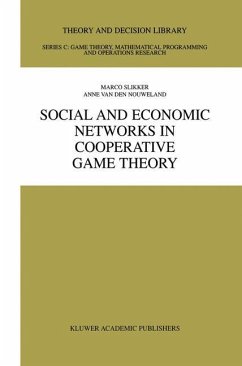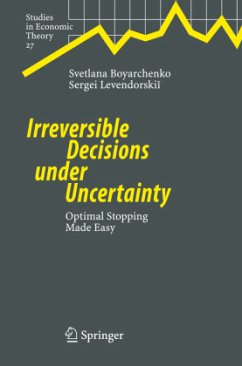
Cooperative Decision-Making Under Risk

PAYBACK Punkte
19 °P sammeln!
In cooperative games, one generally assumes that the agents know exactly the joint (monetary) gains that can be achieved by any possible coalition of cooperating agents. In reality, however, only little is known with certainty. This does not necessarily imply that traditional cooperative game theory cannot be applied in practical situations, for in various cases knowledge of the expected gains suffices. In many other cases, however, it is just the sharing of risk that is beneficial. Joint ventures, for instance, exist since cooperation reduces the risk of the investment for the individual part...
In cooperative games, one generally assumes that the agents know exactly the joint (monetary) gains that can be achieved by any possible coalition of cooperating agents. In reality, however, only little is known with certainty. This does not necessarily imply that traditional cooperative game theory cannot be applied in practical situations, for in various cases knowledge of the expected gains suffices. In many other cases, however, it is just the sharing of risk that is beneficial. Joint ventures, for instance, exist since cooperation reduces the risk of the investment for the individual parties. Since the existing models fail to incorporate such risks, they are not suitable for analyzing cooperative decision-making under risk. This book aims to rectify this deficiency by discussing a model of cooperative games with random payoffs.












